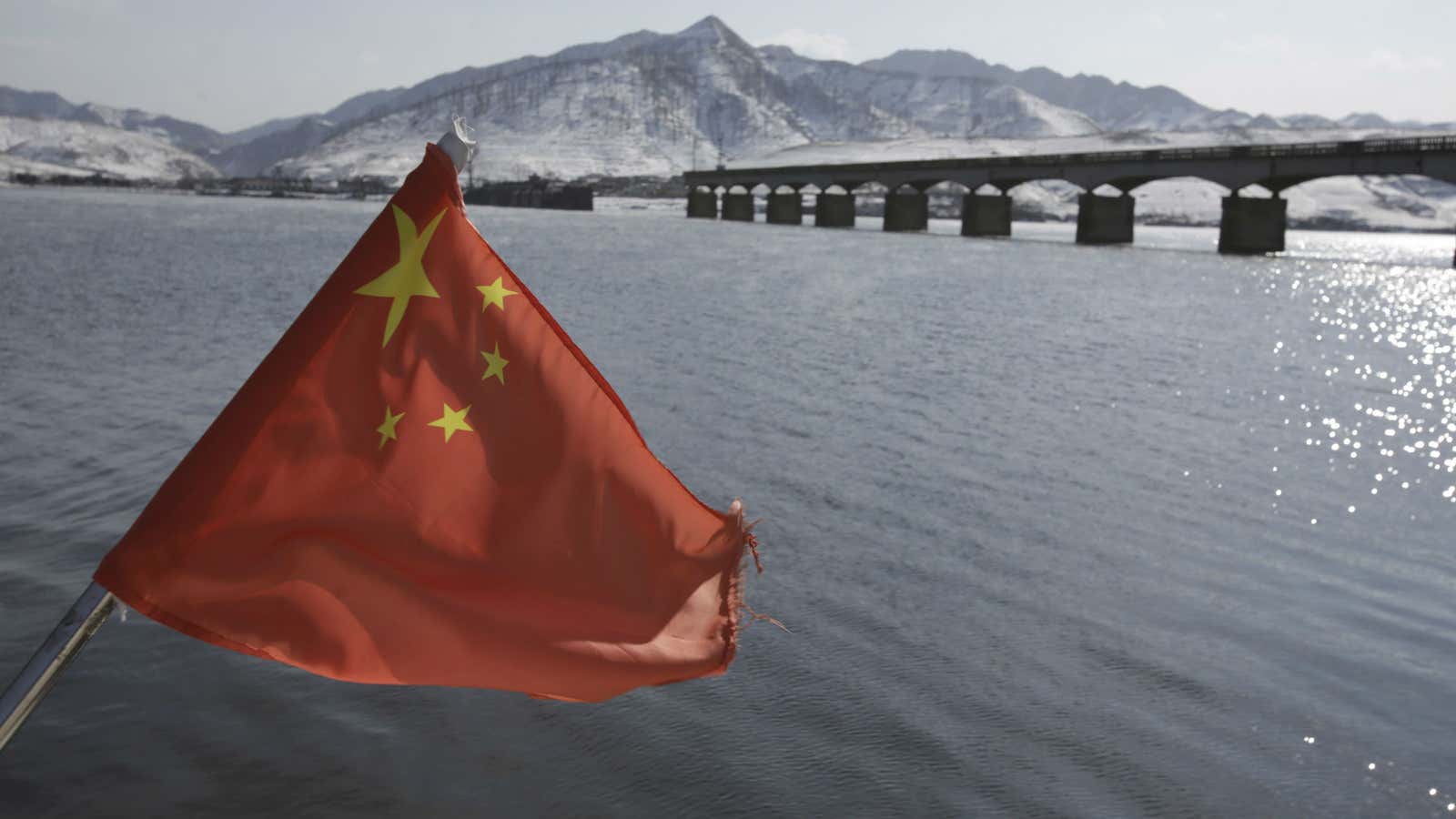China just cut off one of its most important financial ties with North Korea, restricting Kim Jong-un’s access to foreign currency in the wake of its bizarre standoff last month with South Korea and the United States.
The government-backed Bank of China said (paywall) that it had closed the account of North Korea’s Foreign Trade Bank, which the US has called a “key financial node” in North Korea’s nuclear missile program.
The ultimate impact of the closure is still unclear, but the message is not: China is seriously displeased with its troublesome ally, and there has been a significant shift in Beijing’s relationship with its communist comrades in Pyongyang.
“China’s new leadership appears to be taking a tactically more aggressive approach, at least to signaling displeasure with North Korea’s recent actions that have damaged the regional security environment,” Scott Snyder, Senior Fellow for Korea Studies and Director of the Program on U.S.-Korea Policy at Council on Foreign Relations, told Quartz.
The move also highlights China’s budding activism in world affairs, and its willingness to join the United States and Japan in applying sanctions on North Korea. Until recently, China’s preferred role in international affairs had been to push back against sanctions in the United National Security Council. It’s a contrast to see Chinese President Xi Jinping taking more of an active role in the Middle East peace process, and calling out North Korea for throwing East Asia “into chaos for selfish gain,” in comments last month.
China is thought to be North Korea’s main source of hard cash—especially in the wake of Kim’s closure of the Kaesong factory complex that was operated in cooperation with South Korea. In its short statement today, the Bank of China said it had halted all fund transfers related to the account. But there are likely still remaining conduits for Chinese cash to reach Pyongyang, and the timing of the decision—after tensions on the peninsula have largely cooled down—suggests this is part of an ongoing diplomatic dialogue rather than an ultimatum.
Snyder says that China’s overriding objective in regards to North Korea is still stability: “China needs tools for influencing North Korea’s behavior, and they must feel that public announcements on correspondent relationships between banks may be one way of doing this.”
